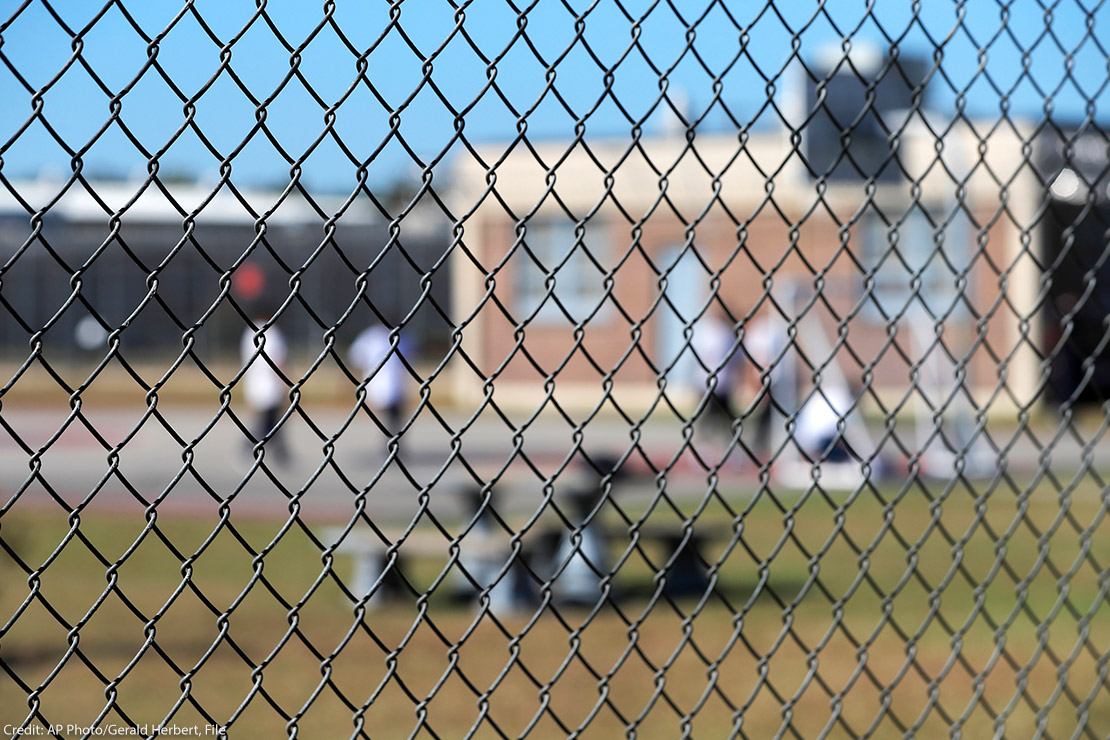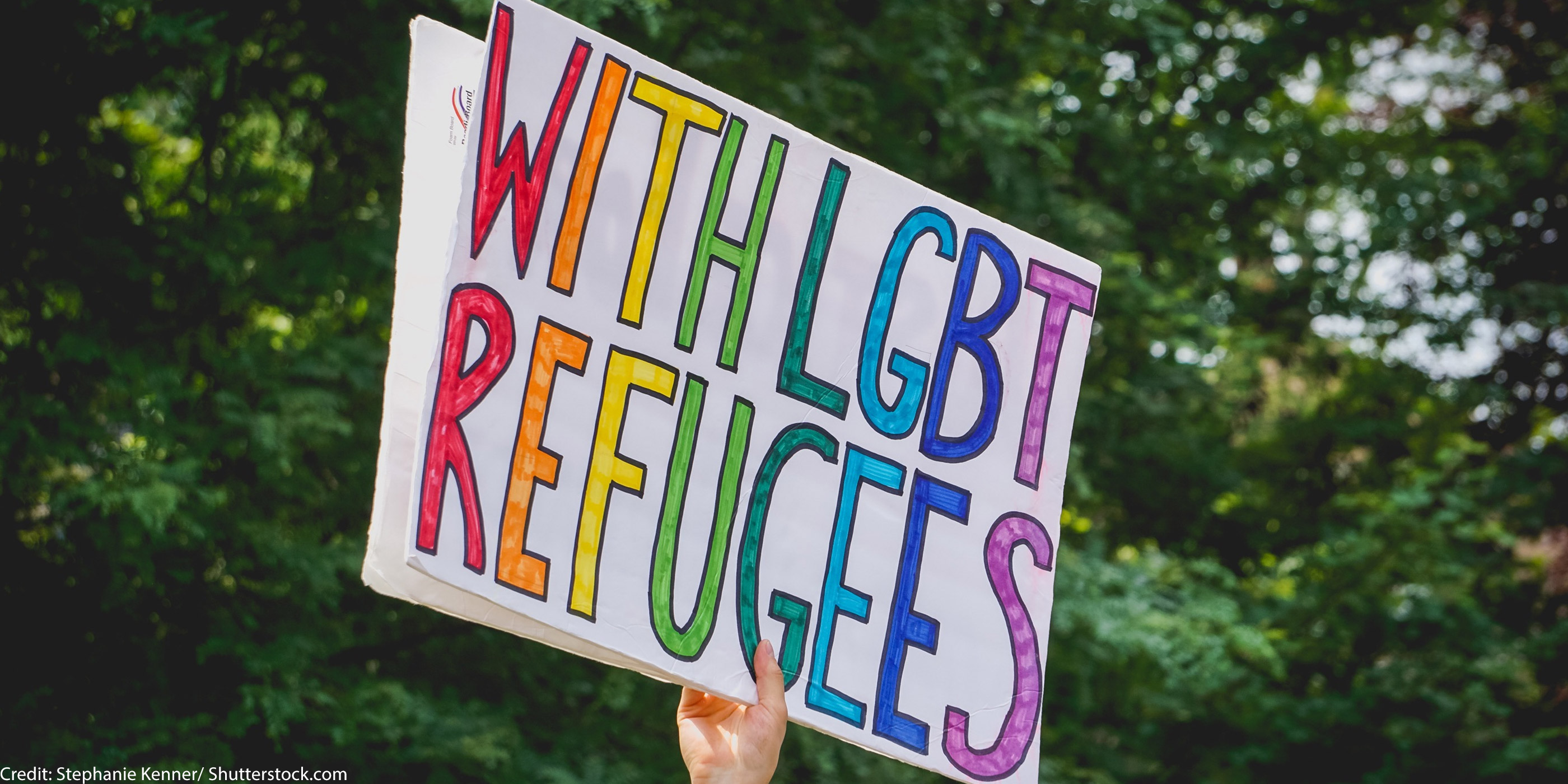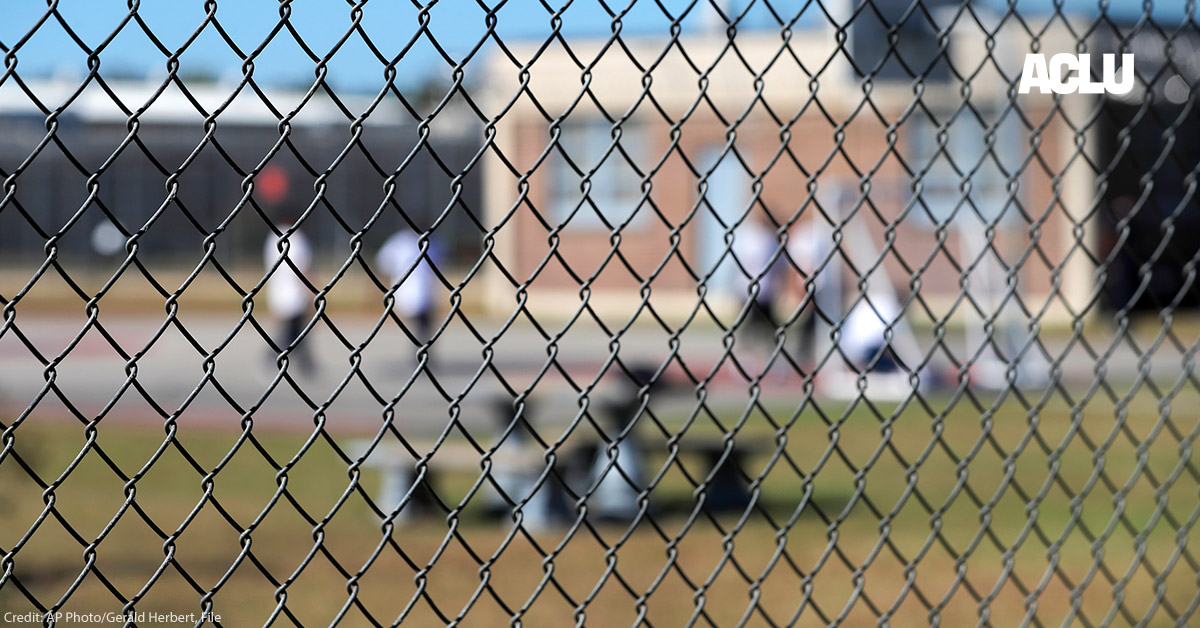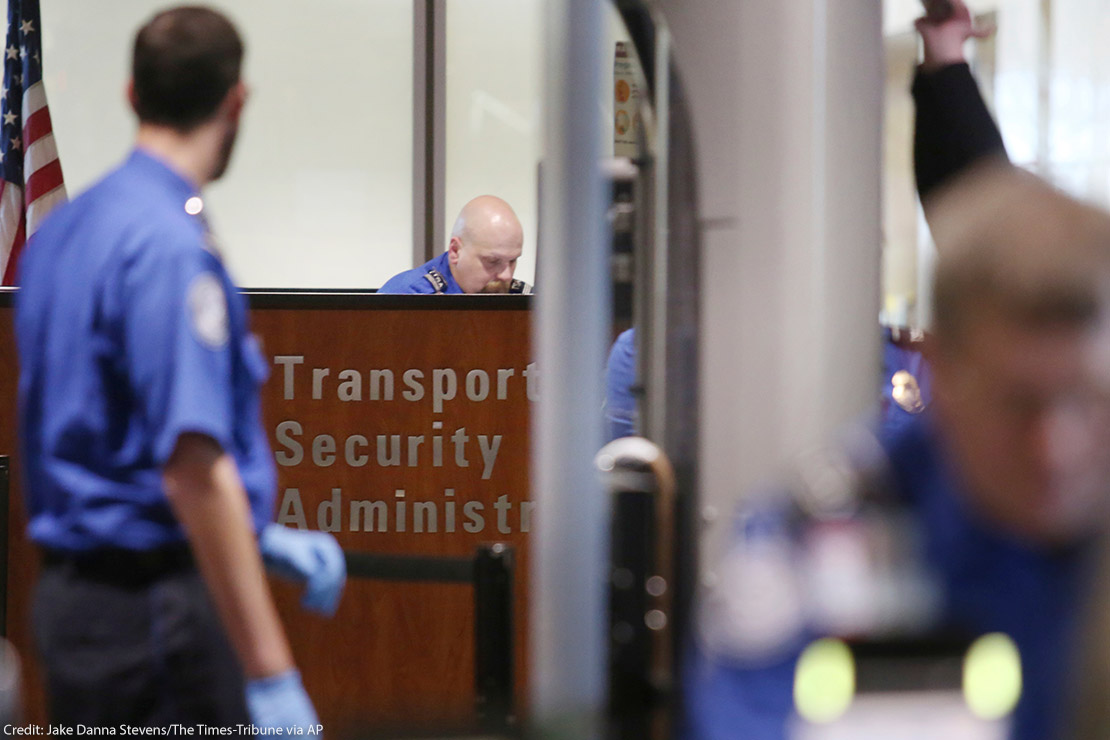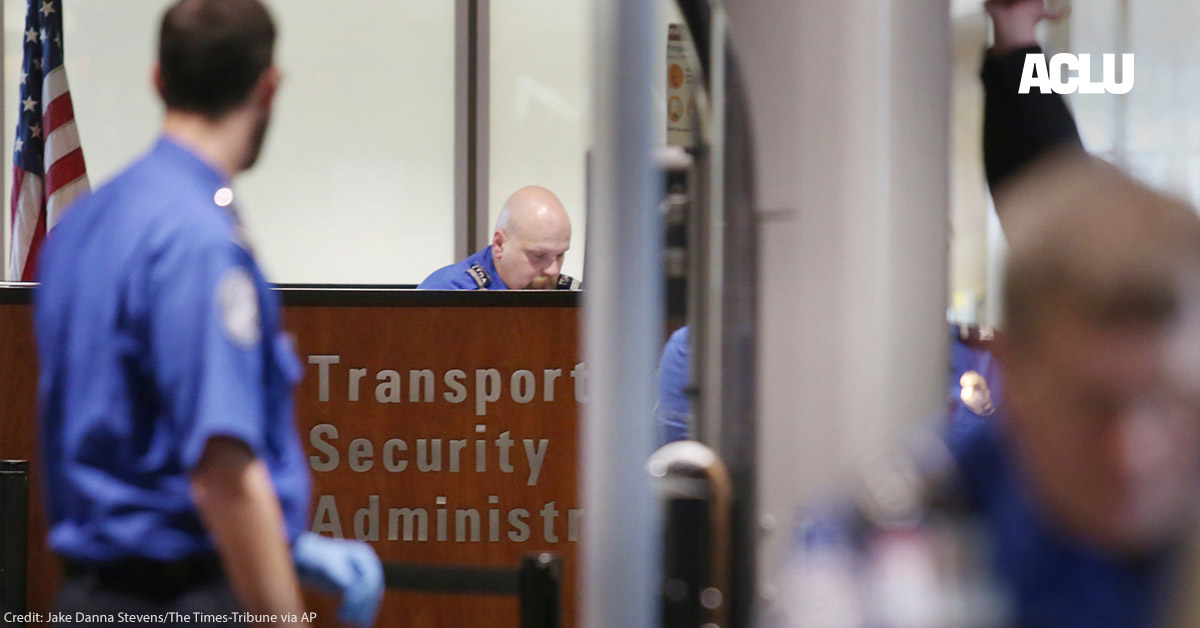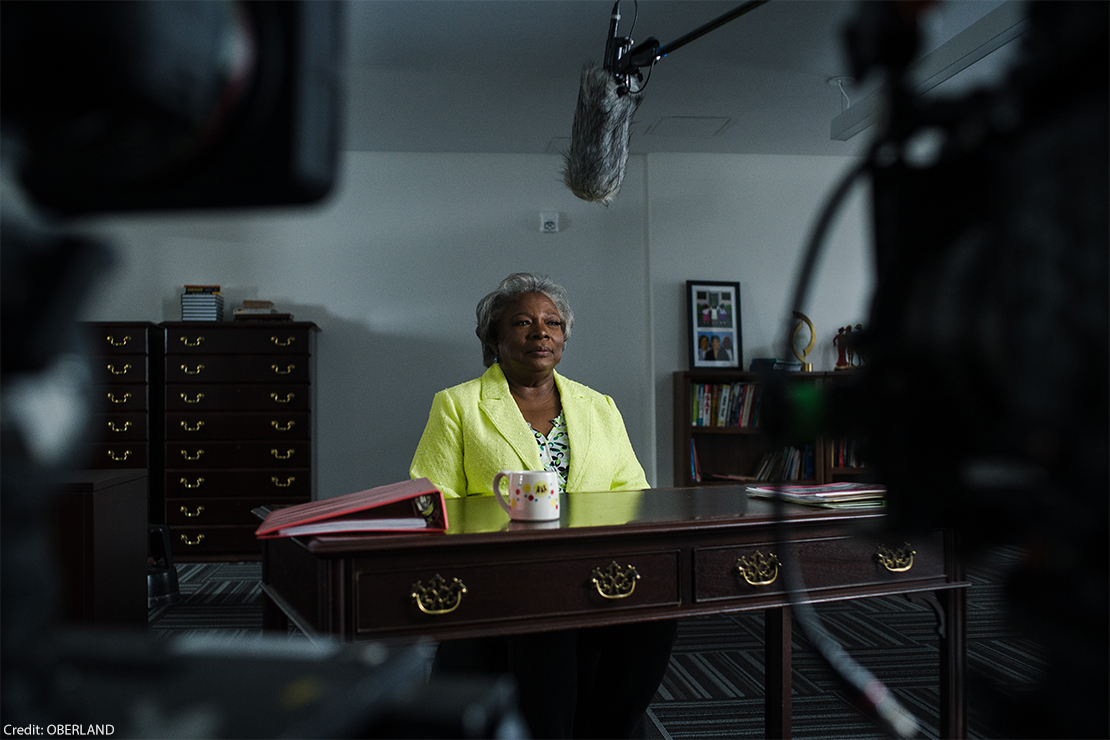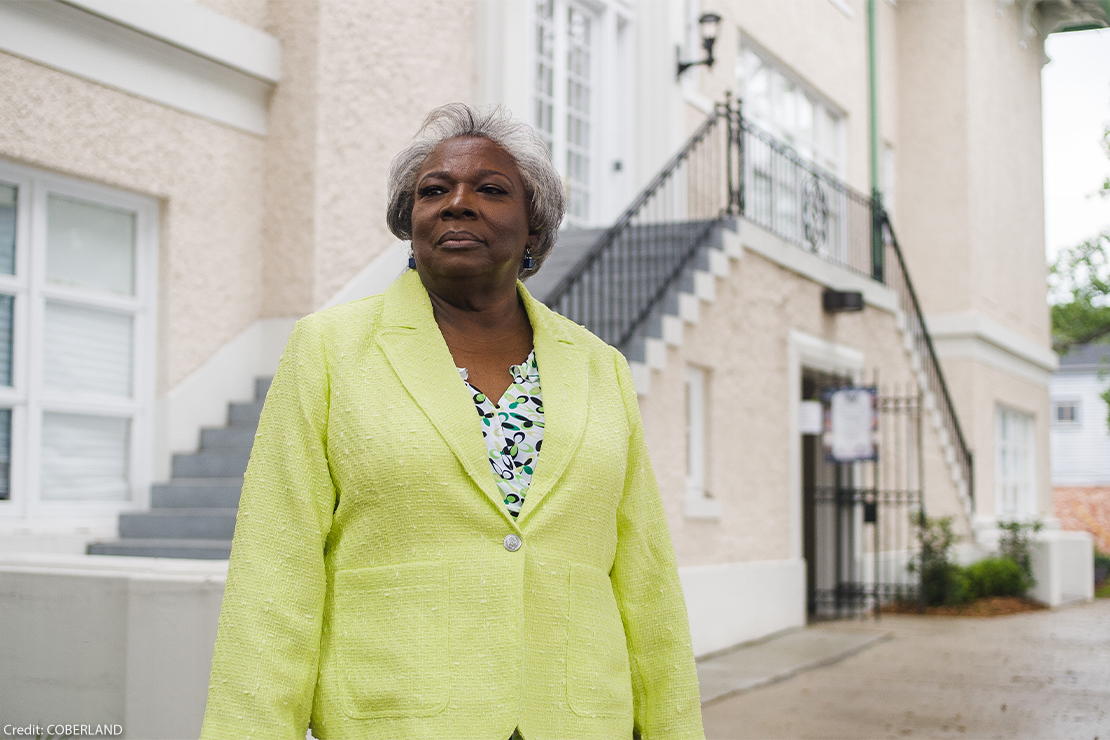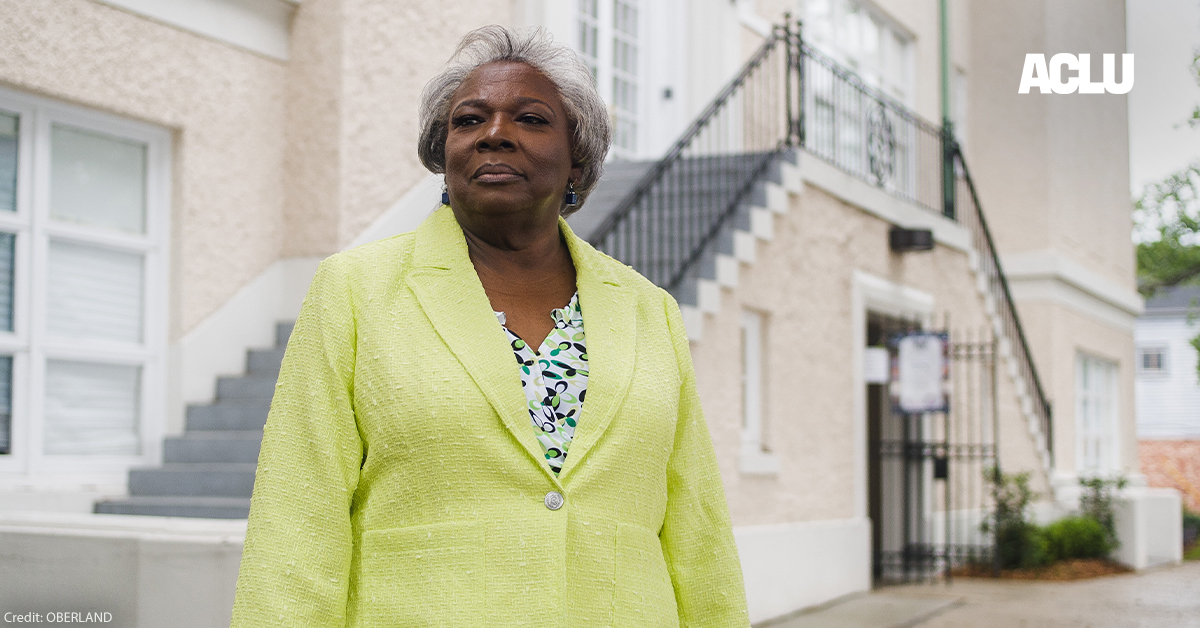Jay Stanley, Senior Policy Analyst, ACLU Speech, Privacy, and Technology Project
The TSA has begun testing a new handheld device that purports to be able to quickly identify the substance that someone is carrying just by pointing a laser at it. This kind of device raises serious privacy issues — including constitutional issues — and it’s not clear whether the agency has seriously grappled with them. As a result, we’re filing a Freedom of Information Act request to find out more.
The device being tested by the TSA is called a “handheld standoff chemical detector,” or HSCD. The TSA is testing one from a company called Pendar. Resembling a bulky hairdryer, the operator points it at a powder, liquid, gel, or solid, and presses a button which shoots a laser at the substance. The device then measures the wavelengths of light that are reflected back, which differ by substance due to a phenomenon of physics called the Raman Effect. In a company demonstration video, an operator points the device at a white powder, and the device reports that it is a mix of sugar and ibuprofen, for example. The company says the device can identify any of about 7,500 unique chemicals, usually producing results in seconds from a distance of up to 6 feet, and that it works through glass or other transparent barriers.
According to a press release the TSA issued in July, the agency partnered with the NYPD to test the device during bag searches on people not suspected of any crime in Grand Central Station in New York City. (Also tested was a device made by a company called Thruvision, which uses thermal imaging to see through clothing in an attempt to identify people carrying guns or wearing suicide vests. We’ve already written about the issues raised by that technology, which has been tested a number of times before.)
ACLU Seeks More Information About Los Angeles Subway Body Scanners
There are a lot of unanswered questions about these body scanners, which see through clothing to detect objects on people’s bodies.
Source: American Civil Liberties Union
Both technologies raise the prospect of an “airportization of American life.” In the past, it was inconceivable that a government agent such as a police officer could demand to search a person’s bag or other personal effects without a warrant based on probable cause. That is still the case for the most part. But the courts have carved out a special exception to this privacy right at airports for the purpose of advancing the “administrative” goal of safe aviation, which is why our bags can be searched there.
Aircraft are uniquely structurally vulnerable to attack, uniquely terrifying to passengers contemplating such attacks, and uniquely able to be weaponized against ground targets. Nevertheless, Americans and their courts have come to accept the expansion of this rationale for bag searches to other locations such as schools, museums, courthouses, and other government buildings as well as some privately owned public spaces like sports stadiums. Unfortunately, in a bad ruling a few years after 9/11, the courts even approved suspicionless bag searches in the New York City subway, even though transit areas in a city are basically public spaces like any other.
Just how much privacy are we going to give up? Are we going to allow a narrow exception to our privacy rights to be expanded so far as to make the Constitution’s protections all but meaningless? To turn us into a checkpoint society and garrison state? Handheld standoff chemical detectors certainly have the potential to become part of that.
There are some important limitations on bag searches at security checkpoints. The administrative exception to the Fourth Amendment allows only for searches carried out for the purpose of protecting the safety of aviation; TSA checkpoints are not general law enforcement stops, and TSA officers are not law enforcement officers. In 2009, agents at one checkpoint started interrogating a man about why he was carrying several thousand dollars of cash and, when he refused to answer questions about his business, called in the police, who detained him. He sued, and as a result the TSA issued directives to its workforce reminding them that their authority is limited to searching for risks to flight safety.
So if the TSA or law enforcement begin using a device that alerts them to the presence not just of materials that are dangerous to flights or large crowds, but also to other substances, that would raise serious questions under the Constitution. The Pendar detector comes loaded with a “library” of chemical signatures, and an executive with the company, Arran Bibby, told me that ordinarily the device is sold with all of the approximately 7,500 signatures loaded in. I asked if it would be possible to load the device with only the signatures for explosives and dangerous chemicals, while leaving out other substances. He didn’t seem to have contemplated doing this, but said that it should indeed be possible.
Bibby told me that many clients for the company’s HSCDs are first responders who need to respond to calls about hazardous chemicals, which are regularly dumped illegally due to the expense of disposal, or to the scene of fatal overdoses where responders need to quickly understand what substances they’re dealing with.
Circumstances like these don’t raise compelling privacy issues. But things enter gray areas quickly where, for example, police officers are dealing not with detecting imminent threats to safety, but with collecting evidence that can result in possible arrest and prosecution for run-of-the-mill crimes. (Bibby said the results of initial Pendar tests have to be confirmed by a forensic lab to be used in court, but not for arrest.)
Meanwhile, the TSA press release includes a photo of a man standing by while NYPD officers equipped with a Pendar (including a presumably fully loaded library) rummage through his backpack. A security official doing a bag check has no right to know whether the pills you’re carrying in your bag are aspirin, birth control, antibiotics, or for the treatment of cancer, high blood pressure, or bipolar disorder. The police should not be able to warrantlessly scan substances carried by a person unless they have a warrant based on probable cause to believe their possession is illegal.
The Pendar currently costs $65,000, a price tag that will help limit its over-use. But it’s not hard to imagine that HSCDs become much cheaper over time, as electronic devices tend to, and become a regular tool at security checkpoints and a standard piece of equipment carried by many police officers. They may also become smaller and more powerful and accurate. What kinds of uses and abuses will that lead to? When things get cheap they tend to be over-used by law enforcement; already we see police officers asking vulnerable people for “voluntary” permission to carry out various kinds of searches — requests that are never actually voluntary when coming from a police officer. This device has the potential to greatly expand the unconstitutional privacy abuses that stem from such requests.
Local Police Using and Abusing DNA and Other Biometric Technologies
ProPublica published report on local police forces building private DNA databases.
Source: American Civil Liberties Union
The Supreme Court has repeatedly explained that the Fourth Amendment provides critical protections against police exploitation of modern technologies to invade privacy. When we’re arrested, for example, the court has said police may search our pockets to look for weapons and to secure evidence, but they can’t look in our phones without a warrant. The high court has also found that the police must get a warrant before using thermal scanning technology to look inside people’s homes in the search for marijuana grow operations.
Have DHS and the TSA done a legal analysis of questions such as these prior to deploying the Pendar in a field test in New York City? Do they know how reliable the device is in a real-world setting — what its false negative and false positive rates are? These are among the questions we are seeking to get the answers to in the Freedom of Information Act request we filed today.
https://www.aclu.org/news/privacy-technology/new-point-and-shoot-chemical-detectors-raise-privacy-and-constitutional-issues
Is that ibuprofen in your bag, or something else? That’s nobody’s business but your own.
